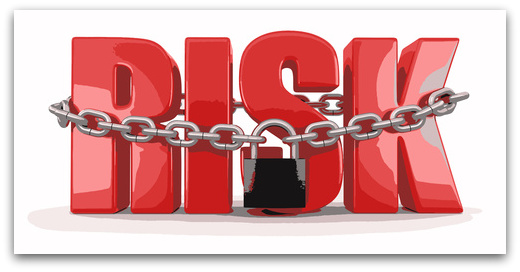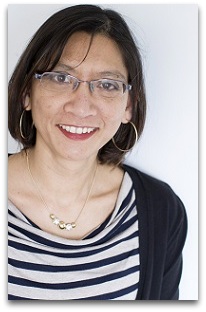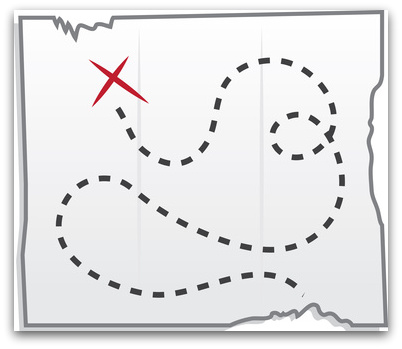In today’s guest post Freedom Business Coach Rachel Henke shares some of her expertise as she discusses something she’s observed:
Discover The 6 Figure Coach Myth

Everywhere I click lately people seem to be promising to teach how to hit 6 figures in your coaching business. You’ve probably noticed it yourself and had one of two reactions:
- “Only 6 figures? I hit that years ago. What’s the big deal? I’m ready to hit 7” OR
- “6 figures? Are you kidding me? If someone would just show me how to hit 6 figures I’d be over the moon and happy forever.”
And here’s the other thing I’ve noticed.
The coaches who’ve already hit 6 figures still have problems or what look like problems to them but let’s be honest here; they’re not going hungry.
And the coaches who feel desperate to hit the 6 figures also have problems or what look like problems to them too …
And perhaps they are struggling with the financials more than the first group but they’re usually not going hungry either.
So as I develop my coaching business and my understanding of what I want and what I can help my clients achieve, I experienced an insight which rocked my world.
Whether you’re at 6 figures and beyond, or yearning and striving to reach the infamous 6 figures, has little connection with how happy you feel each day.
Yes, it’s true that since I jumped off what I call my 10 year cash roller coaster, I’m able to have more of the experiences I want that I pay for with money, but I notice I still face some of the same old problems.
They just look different and show up in a different way. It was actually quite surprising because in my first business model I can see quite clearly that I lived in the future.
‘When I reach xxx I will be so happy.’
‘When I help someone reach xxx we will both be so fulfilled.’
‘When I reach that level my problems will be over.’
‘When we can have our dream holiday it will be amazing.’
Now it’s important I’m clear about something here. I’m not saying that money can’t boost your happiness because in my experience it really can.
When I say yes to my kids rather than no to something ‘expensive’ that I want to say yes to, that makes me very happy… at least in that moment.
When I just booked our dream holiday it made all of my family, including me, very happy.
So I’m not going to become one of those guys who tells you that money isn’t important because in a physical world I think that’s just silly.
BUT it is interesting to notice how our happiness comes from the inside in the same way that the horrible feeling of worry does too. And whether you are dreaming of 6 figures or are way beyond it, I’m betting that you still feel like you have some problems sometimes.
For example, I’ve realised that if you’re in the habit of worrying about money which so many people are, it’s just as likely that you will still worry about money even when you have a bigger flow coming in. How crazy is that?
You’ll just worry about different things such as taxes, what to invest in and how to manage your money.
I didn’t get this before but now I can see clearly that worrying is just a habit and whether you worry about whether you’re good enough to hit six figures or how you handle your business now you have it, the worrying can feel curiously the same.
If you want to go deeper on this, your challenge today is to ask yourself a couple of questions:
 1) Why is it important to you to create or maintain a 6 figure business?
1) Why is it important to you to create or maintain a 6 figure business?
If it’s just because everyone talks about it and it feels like a sexy number then I’d encourage you to have a think about what you really want to create and why.
 2) How much of your 6 figures do you actually get to keep with your current business model?
2) How much of your 6 figures do you actually get to keep with your current business model?
Let’s face it, 6 figures is a nice number presuming it’s 6 figures in a solid currency, but if most of it goes back out the door again, then what’s the point? I had a business like that for years and it was exhausting.
 3) How many hours do you have to spend travelling, preparing, delivering, marketing and generating new clients just to keep your business going?
3) How many hours do you have to spend travelling, preparing, delivering, marketing and generating new clients just to keep your business going?
If you’re so burned out from running your 6 figure business then your business is pretty much running you.
At the end of the day, as conscious entrepreneurs and coaches I believe we’re driven by the impact we can create but please don’t forget to make that impact on your own life too.
I hope this was helpful for you. Please share on your favourite social media and let me know what you think.
About Rachel Henke
 Rachel Henke is the bestselling author of “The Niche Expert” – Harness the power of the internet to attract perfect clients, publicity & opportunities, and she is the Freedom Business Coach to thousands around the world via her Marketing & Mindset ezine and podcast.
Rachel Henke is the bestselling author of “The Niche Expert” – Harness the power of the internet to attract perfect clients, publicity & opportunities, and she is the Freedom Business Coach to thousands around the world via her Marketing & Mindset ezine and podcast.
Rachel is the founder of www.Rachelhenke.com which offers virtual coaching & simple online marketing systems for entrepreneurial experts to boost their expert factor with a magnetic brand whilst creating a life of freedom, purpose and profits.
‘Breaking free’ of the corporate world upon relocating to a sleepy village in the UK after living in Jerusalem for many years, she started her first home based business working a couple of hours a day from the breakfast bar round her two young daughters back in 2003 and has never looked back.
Several years later, tired of being out of the house & away from her children so much, she turned to the internet & social media to attract a global following and became what she now calls a ‘freedom coach.’
An in demand online marketing, personal branding expert and published author, Rachel has been featured on BBC Radio, Association for Coaching, International Coach Federation and other international media.
Claim Your Free Training & Discover The Secret Formula To Attract An Abundant Flow Of Perfect Premium, Clients Who Value Your Expertise & Want What You’re Selling: http://rachelhenke.com/coachingconfidence



 Jen Waller is on a mission to support, nurture and encourage coaching skills and talents from non-coach to coach and beyond.
Jen Waller is on a mission to support, nurture and encourage coaching skills and talents from non-coach to coach and beyond.



 Rachel Henke is the bestselling author of “The Niche Expert” – Harness the power of the internet to attract perfect clients, publicity & opportunities, and she is the Freedom Business Coach to thousands around the world via her Marketing & Mindset ezine and podcast.
Rachel Henke is the bestselling author of “The Niche Expert” – Harness the power of the internet to attract perfect clients, publicity & opportunities, and she is the Freedom Business Coach to thousands around the world via her Marketing & Mindset ezine and podcast.
 Adele Michal helps entrepreneurs and small business owners help more people and make more money by teaching them how to sell authentically instead fearing sales.
Adele Michal helps entrepreneurs and small business owners help more people and make more money by teaching them how to sell authentically instead fearing sales.

